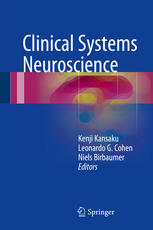

Most ebook files are in PDF format, so you can easily read them using various software such as Foxit Reader or directly on the Google Chrome browser.
Some ebook files are released by publishers in other formats such as .awz, .mobi, .epub, .fb2, etc. You may need to install specific software to read these formats on mobile/PC, such as Calibre.
Please read the tutorial at this link: https://ebookbell.com/faq
We offer FREE conversion to the popular formats you request; however, this may take some time. Therefore, right after payment, please email us, and we will try to provide the service as quickly as possible.
For some exceptional file formats or broken links (if any), please refrain from opening any disputes. Instead, email us first, and we will try to assist within a maximum of 6 hours.
EbookBell Team

4.1
100 reviewsThe impaired brain has often been difficult to rehabilitate owing to limited knowledge of the brain system. Recently, advanced imaging techniques such as fMRI and MEG have allowed researchers to investigate spatiotemporal dynamics in the living human brain. Consequently, knowledge in systems neuroscience is now rapidly growing. Advanced techniques have found practical application by providing new prosthetics, such as brain–machine interfaces, expanding the range of activities of persons with disabilities, or the elderly. The book’s chapters are authored by researchers from various research fields such as systems neuroscience, rehabilitation, neurology, psychology and engineering. The book explores the latest advancements in neurorehabilitation, plasticity and brain–machine interfaces among others and constitutes a solid foundation for researchers who aim to contribute to the science of brain function disabilities and ultimately to the well-being of patients and the elderly worldwide.